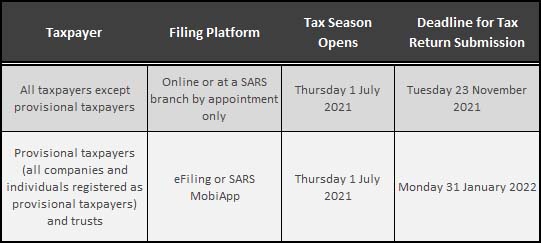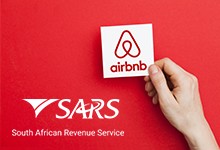July
July
01 Jul 2021
How 67 Minutes on Mandela Day Can Change Our World and Benefit Your Business

“What counts in life is not the mere fact that we have lived. It is what difference we have made to the lives of others that will determine the significance of the life we lead” - Nelson Mandela
Nelson Mandela, our former president and world-renowned human rights champion, was born on 18 July. Fondly known as Madiba or Tata, his life was an inspiration to the world and he received more than 250 public honours, including the Nobel Peace Prize.
Why Mandela Day and why 67 minutes?
In recognition of his immense contributions, 18 July was declared Nelson Mandela International Day by unanimous decision of the UN General Assembly in 2009. It is more than a celebration of his life and legacy; it is a global movement to honour his life’s work and to change the world for the better.
On his 90th birthday, Madiba said: “It is time for new hands to lift the burdens. It is in your hands to make of our world a better one for all.”
This call-to-action started a worldwide movement for social change, led by the Nelson Mandela Foundation which said: “Nelson Mandela has been making an imprint on the world for 67 years, beginning in 1942 when he first started to campaign for the human rights of every South African. By dedicating 67 minutes of their time – one for every year of Mandela’s service – people can give back to the world around them and make a contribution to global humanitarianism.”
No matter how small your action, Mandela Day is about changing the world for the better, and celebrating the idea that each individual has the power to transform the world, the ability to make an impact.
Top tips for making an impactful contribution
Align your company’s contribution with your vision and mission
Focus your contribution around your product or service or expertise
Make it a long-term commitment with an authentic contribution that will have a lasting impact
Focus on your company’s immediate community
Include your staff from the start
Collaborate – invite your suppliers, clients and even competitors to participate in your 67 minutes initiative
Advertise and market your 67 minutes initiatives – on your website, in the local newspapers and on social media using the hashtag #MandelaDay.
Ideas for Your 67 minutes
Madiba himself believed that education is what makes the greatest impact. He said: “Education is the most powerful weapon which you can use to change the world.”
For many companies, offering scholarships, internships, apprenticeships and mentorships is an excellent way to help change the world while reaping many benefits, including tax incentives and access to well-trained future employees.
Businesses can also simply contribute to the official Mandela Day Each1Feed1 campaign or join in a community initiative.
Companies can also link into the Mandela Day Global Network, a community of organisations, government, corporates and individuals that partner with the Nelson Mandela Foundation to drive Mandela Day and pursue its objectives. It is a base for the strategic partnerships of organisations with common goals aimed at globally coordinating efforts, sharing information and linking the needs to resources.
There are so many ideas…
Dedicate 67 minutes to brainstorm and plan your company’s formalised contribution going forward
Give your staff 67 minutes of paid time off work to support a charity or organisation of their own choosing
Spend 67 minutes as a team painting, cleaning and maintaining a school, clinic or library
Take 67 minutes to clean up the street or the local park, or volunteer to help out at a soup kitchen or animal shelter
Kick-off a project to plant 67 trees or a community garden over the coming year
Host a fundraiser such as a breakfast, fun walk or even a golf day to raise funds for a local cause
Donate your 67 units of your products, service or expertise to a start-up company or a local charity organisation
Pledge to donate R67 for each R50 raised for a cause by employees, clients and suppliers
Donate 67 blankets, food parcels, rugby or football kits, bicycles or computers to a school, church or a local organisation
Make company resources, such as delivery vehicles or computers, available to organisations when not in use (e.g. over a weekend)
Host a party for emergency workers and volunteers, or treat a group of underprivileged kids or the elderly to a fun day.
What are the benefits to your business?
Social contributions improve not only the lives of the project’s beneficiaries but also of those who are involved –
Creates an opportunity to link your business to a cause aligned with your corporate identity and business strategy
Improved brand recognition through association and positive media coverage
Placing your company in a positive spotlight improves corporate reputation and creates a competitive edge with regard to attracting and retaining investors, clients, suppliers and employees
Increased customer loyalty: consumers are attracted to companies that contribute to a greater cause, as it allows them to feel they are making an indirect impact just by supporting your company and brand
Higher employee satisfaction: a common cause for the greater good is an excellent way to bring employees together to make a difference as a team.
Download resources for businesses, schools, organisations and individuals, or a full Mandela Day toolkit, at https://www.mandeladay.com/ or visit the Nelson Mandela Foundation for more information.
Tax Filing Season 2021 Opened 1 July: Start Preparing!
“The secret to getting ahead is getting started.” - Mark Twain
To avoid the last-minute rush, the risk of errors and omissions, and the cost of late submissions, penalties and audits, there is no better time to get ahead on your company and individual tax returns than the day the 2021 tax season opens. What applies to your business – and to you? The tax season for filing the 2020/2021 returns for both your individual tax and your company’s tax has now opened. Have a look at the table below for details –


Capital Gains tax and its specific exclusions also remain unchanged from last year, ranging from 18% for individuals and special trusts, 22.4% for companies and 36% for other trusts.
Given these tax rates, it is imperative to ensure you and your business is taking advantage of every tax deduction possible!
Take advantage of familiar and new deductions
The basic tax deductions for businesses and individuals are tax-deductible expenses, defined as any expense incurred in the carrying on of any trade, including employment income. However, there are many terms and conditions dictating when and how these deductions may be claimed, which makes it imperative to take professional tax advice.
For example, for the 2021 tax year with its numerous Covid-19 lockdowns, certain expenditure incurred while working from home can be included in the deductions. The expenses are calculated as a pro rata amount of home expenses such as rates and taxes, electricity, repairs and insurance. However, these expenses can’t be of a capital nature and no deduction can be claimed for any equipment provided by an employer without charge, or for anything that is reimbursed. Also bear in mind that claiming a tax deduction for home office use can impact on capital gains tax when you sell your home.
Red flags: what has changed since last tax season?
Building on last year’s first auto-assessments, SARS says that – starting in July – significantly more individual taxpayers will be auto-assessed this year. If you are selected to be auto-assessed, SARS will send you an SMS. Before you accept an auto-assessment, be sure to check with your accountant that all the relevant information and declarations have been correctly included, ranging from subsistence and travelling allowances and advances to fringe benefits; and that deductions for retirement fund contributions, medical and disability expenses and even donations have been correctly applied.
SARS has significantly improved its abilities to draw taxpayer information from third parties, including employers, financial institutions, medical schemes, retirement annuity fund administrators and other third-party data providers, making it easier than ever before for SARS to detect incorrect or undisclosed information.
SARS has notified certain taxpayers that they are under specific scrutiny, notably ‘wealthy’ taxpayers and those with ‘complicated’ tax structures, as well as taxpayers who hold offshore assets such as crypto currencies and those who receive rental income, including from Airbnb rentals. With regard to companies, SARS states: “CIT filing compliance is currently an issue for SARS and as SARS closes in on non-compliance by companies it urges companies to note that it is compulsory for registered companies that are required to file a return to do so on time and complete in all respects”.
The consequences of not submitting your tax return correctly by the SARS deadline are extensive.
SARS will levy a non-compliance penalty for each month that an individual’s return is outstanding. This can range from R250 up to R16,000 a month for each month that the non-compliance continues, up to a maximum of 35 months.
Failure to submit the return(s) for a company within the prescribed period will result in administrative penalties being imposed on a monthly basis per outstanding return and could result in a summons and/or criminal prosecution, which upon conviction is subject to a fine or to imprisonment for a period of up to two years.
While previously a mistake made by a taxpayer was only a crime when it was done “willfully and without just cause”, things have changed. Now, there are two categories of offence. One requires willfulness, but the other doesn’t. In that second category, even if non-compliance was due to negligence or ignorance, taxpayers can be convicted of a criminal offence for, among others; failure to submit a return when required to do so, to retain all relevant substantiating records; to provide any information requested by SARS; or failure to disclose any material information to SARS.
What to do now
Don’t delay! The deadline dates are deceptively distant. However, the 23rd of November is less than 5 months away, and 31 January is just a few short weeks later. Immediately starting to prepare to lodge your tax returns will ensure that there is time to attend to any potential problems, such as finding documents, obtaining third party information or getting professional advice.
Ensure that all sources of income are included and that all rebates and amounts allowed to be deducted or set off are also factored in, including provisional payments already made and any claims for COVID-19 tax relief.
Keep accurate records of all the calculations and source documents used as SARS may ask for these documents to be verified and/or for the calculations to be justified.
Get professional assistance!
4 Ways to Measure Your Company’s Performance, Beyond Profit

“Even if you are on the right track, you’ll get run over if you just sit there” - Will Rogers
In the hostile business environment in which we find ourselves, every small advantage could be the difference between success and failure. While traditionally companies and their shareholders have looked at profit and the cold hard numbers for determining the current and future success of a business, there are many other non-financial measures, which can give as clear a picture as to just how strong a company is. These non-financial measures can provide clarity and context for the financial KPIs (key performance indicators), while at the same time offering a way to see whether your business is living up to its mission statement and vision in a way that the numbers cannot.
If looked at carefully these measures can help illuminate your business’ strengths and weaknesses, while also pointing to areas which may be affecting business performance.
Here then are four significant non-financial performance measures every business owner should be analysing.
Efficiency and Delivery
The profit margin may look good, but what it cannot do is tell you just how hard you are working for that profit, or where things can be improved. How you choose to examine your company’s efficiency and delivery will depend strongly on exactly what service you are offering. For those in manufacturing an excellent statistic to look at is the “Product Defect Percentage”, which can be worked out by dividing The Number of Defective Units in a Given Period by The Total Number of Units Produced in the Same Period. This combined with a general Efficiency measure, which in the manufacturing industry can be measured by analysing how many units are produced every hour and the plant’s uptime percentage, can give you a very clear idea of inefficiencies in the system.Deadline-driven companies and those in the transport or logistics industries may want to look more closely at their “On-time Rate”, being the percentage of time products were delivered on time as scheduled. Dividing the Number of On-Time Units in a Given Period by The Total Number of Units Shipped in a Given Period will give you your “On-Time Rate”.Customer support tickets are also a wealth of information. How many new tickets are opened, how quickly they are closed and how many go unanswered are all valuable when calculating customer satisfaction as well as flaws in your processes.Customer retention and conversion rates
Your customer is obviously the backbone of your business. Keeping them happy will result in success, and likewise their dissatisfaction can result in bankruptcy. Tracking the pure numbers of clients that you have, and their loyalty will give you a good indication for the coming year. Did you gain new clients, and did your old ones stay with you? Answering no to either of these questions highlights problems. If you are getting in lots of new clients, but not managing to keep them then you need to look at costs, quality and service levels, because your PR and marketing are clearly working. Alternatively if you have a core of very loyal customers, but are struggling to find new work, then what is needed is additional budget on getting your name out there.Using the formula, Customers Lost in a Given Period divided by the Number of Customers at the Start of a Period, will give you your Customer Retention Rate.Further to this is just how successful your team is at closing a sale once that customer is through your door. Are you making sales, or winning pitches? Just how regularly? The formula for working out your conversion rate is: Interactions with Completed Transactions divided by Total Sales Interactions. If this is going up then your sales team is working optimally, but a declining conversion rate may hint at the need for morale boosts within the sales team, or even additional training.The power of promotion
Every business owner will know that the word of mouth and customer recommendations are the single best way to increase business and yet very few entrepreneurs or new businesses will track this statistic. It requires a little work but setting up a “net promoter score” survey is a good way to gain feedback from your customers or clients.There are principally two kinds of net promoter score surveys, ones that focus on a customer’s loyalty to the brand, known as a “relationship survey” and ones that want to analyse a customer’s experience at a specific event known as a “transactional survey”. While the latter will allow you to drill down into the details of each customer contact point, it is the former which will give you a stronger overall impression of the reputation of your brand.This survey should be a maximum of 4 or 5 questions to avoid fatigue and increase responses. These questions should all focus on whether people enjoy interacting with the brand, where their problems may be, and a final question can ask how likely they are to recommend the company with a score out of 10.The likelihood that customers will recommend a brand to others can be worked out by assigning people who score the company a nine and higher as promoters and those who score it six or lower as detractors. Then take the Number of Promoters and minus the Number of Detractors to find your Net Promoter Score.
Don’t forget to leave a comment box at the bottom of your survey and ask whether the customer wants to be contacted. People may have additional insights that your survey doesn’t cover.
Maximising your workforce
Staying ahead in business depends on your employees and getting the most out of each person’s skills will greatly benefit your bottom line. Retaining good staff is an important part of the business as in the long term having experienced and knowledgeable employees will make everything else work more smoothly at the company.High performers need to be identified and retained. A good business owner is always aware of the company’s “High Performer Turn Over Rate”. This statistic reveals the company’s ability to firstly attract, but also more importantly retain, good employees. Your High Performer Turnover Rate can be calculated by dividing the Number of High Performers Who Departed in Past Year by The Number of High Performers Identified.
If you find your company is leaking high performers and the turnover rate is higher than you would like, it would be wise to work out just why this is happening. Your company’s “Salary Competitiveness Ratio” will give you an idea of whether people are leaving for money. You work it out, by taking your Average Company Salary and dividing it by the Average Salary Offered by Competitors.
If it’s not your salary offering, then perhaps chances for advancement have been stifled? High performers tend to be ambitious. Looking at the “Internal Promotion Rate” gives a great indication of whether staff are being allowed to grow and develop at a reasonable rate. It can be calculated by dividing the Number of Promoted Individuals by the Total Number of Employees.No matter what you do, people will leave, so getting high performers into the company is always important. Looking carefully at the efficiency of your hiring process with regard to time and cost to recruit new employees, will also show whether your HR systems could use an improvement. Remember, every month a position is vacant means your company is running sub-optimally and losing out on profit.
What You Should Know About Airbnb and Tax

“All forms of rental income must be declared to SARS … We are … determined to make it hard and costly for non-compliant taxpayers not willing to meet their obligations. We are working hard to improve system capabilities, in order to detect those taxpayers who do not comply by using data to identify risk” - extracts from SARS media statement 11 March 2021
The Basics
Airbnb is an online app which allows homeowners to rent out their property to travelers on an ad hoc basis with very little admin from their side. Users of the app simply search and select properties that have been listed in the area they are visiting, then pay on the Airbnb platform. The owner is responsible simply for letting them in and making sure the property is as described in terms of quality and cleanliness. In return for this service Airbnb takes a percentage of the total rental charged as commission.
It’s a simple and clean system that to date has been extremely difficult for SARS to track. The recent announcement by the revenue service that it was aware owners were not declaring this income and thus underpaying owed taxes and that they are determined to tax this income does, however, suggest that things are about to change.
“We are determined to make it hard and costly for non-compliant taxpayers not willing to meet their obligations. We are working hard to improve system capabilities, in order to detect those taxpayers who do not comply by using data to identify risk,” SARS announced.
This in itself poses a problem for SARS as while it’s easy to see just who is renting their property out on Airbnb by looking at adverts and cross-referencing them with ownership records, it is more difficult to see just how much time was spent by guests in the property. Nonetheless, the announcement does seem to indicate a determination by SARS to put a stop to tax avoidance in this area and this could spell trouble for those who have been letting out their properties, most likely in the way of audits. But just what is owed by owners, and how would they correct this situation?
Income tax returns and registering for VAT
There is no doubt income derived from letting a property out on Airbnb must be declared on your income tax return. As SARS made clear, “This is the same principle that applies to any person who has rental income from letting out their property as a homeowner, placing them under the same obligation to declare such rental income to SARS”.
According to registered CA(SA) and Group Financial Controller for SYSPRO Louise Buchanan, “A property owner who hosts fee-paying guests like in the case of Airbnb, has to declare the rental income on their income tax return as it is considered gross income.” She warns that in addition to this, any property owner earning more than R1 million within a 12 month period would also need to register as a VAT vendor and charge VAT 15% on rental income.
What about deductions?
As always, any income that comes with costs can be reduced by a portion or percentage of certain of those costs allowable for tax purposes.
According to Buchanan only expenses which arise in relation to the production of rental income can be claimed as a deduction. “These include levies, rates and taxes, electricity and water, home-owner’s insurance, advertising, bond interest and agent’s fees,” she says, cautioning that, “If only a portion of a property is rented out, then only pro-rata expenses related to that portion are deductible”.
What about Airbnb themselves?
Airbnb has a notice on its site which states that “In areas that Airbnb has made agreements with governments to collect and remit local taxes on behalf of hosts, Airbnb calculates these taxes and collects them from guests at the time of booking. Airbnb then remits collected taxes to the applicable tax authority on the hosts’ behalf.”
This can sometimes be confusing for the home-owner who may believe that tax has been paid on their behalf already. Unfortunately, South Africa is not one of the areas in which Airbnb has made an agreement with government to collect and remit taxes on its behalf. Owners with properties in other areas are, however, able to take advantage of this fact, and a full list of these areas can be found here.
What to do if you didn’t declare Airbnb income and owe back taxes.
Homeowners who have not been paying taxes on their Airbnb income are still liable for those taxes and SARS has made it abundantly clear that they aim to find and crackdown on non-compliant owners.
“Taxpayers are reminded that failure to comply with their tax obligations may result in administrative penalties being imposed in addition to interest, or even criminal action being taken against them,” the revenue service said.
Buchanan explains that in practice what this means is that administrative penalties are likely to be imposed along with interest, but has also warned that it would not be unheard of for criminal action to also be taken against a defaulter. She therefore urges all Airbnb owners who may be in default to consider declaring their Airbnb income through the SARS voluntary disclosure programme, which offers more favourable penalty amounts and a significantly reduced chance of criminal procedures being instated.
If you are an Airbnb owner who has not declared this income, it would be wise to speak to your accountant to evaluate just how much you might owe in back taxes and to try clear up the situation before you are the subject of a tax audit.
Your Tax Deadlines for July 2021

1 July – Start of Filing Season 2021 for Individuals (Non-Provisional)
1 July – Start of Filing Season 2021 for Individuals (Provisional) & Trusts
7 July – Monthly Pay-As-You-Earn (PAYE) submissions and payments
23 July – Value-Added Tax (VAT) manual submissions and payments
29 July – Excise Duty payments
30 July – Corporate Income Tax (CIT) Provisional Tax Payments where applicable
30 July – Value-Added Tax (VAT) electronic submissions and payments.




